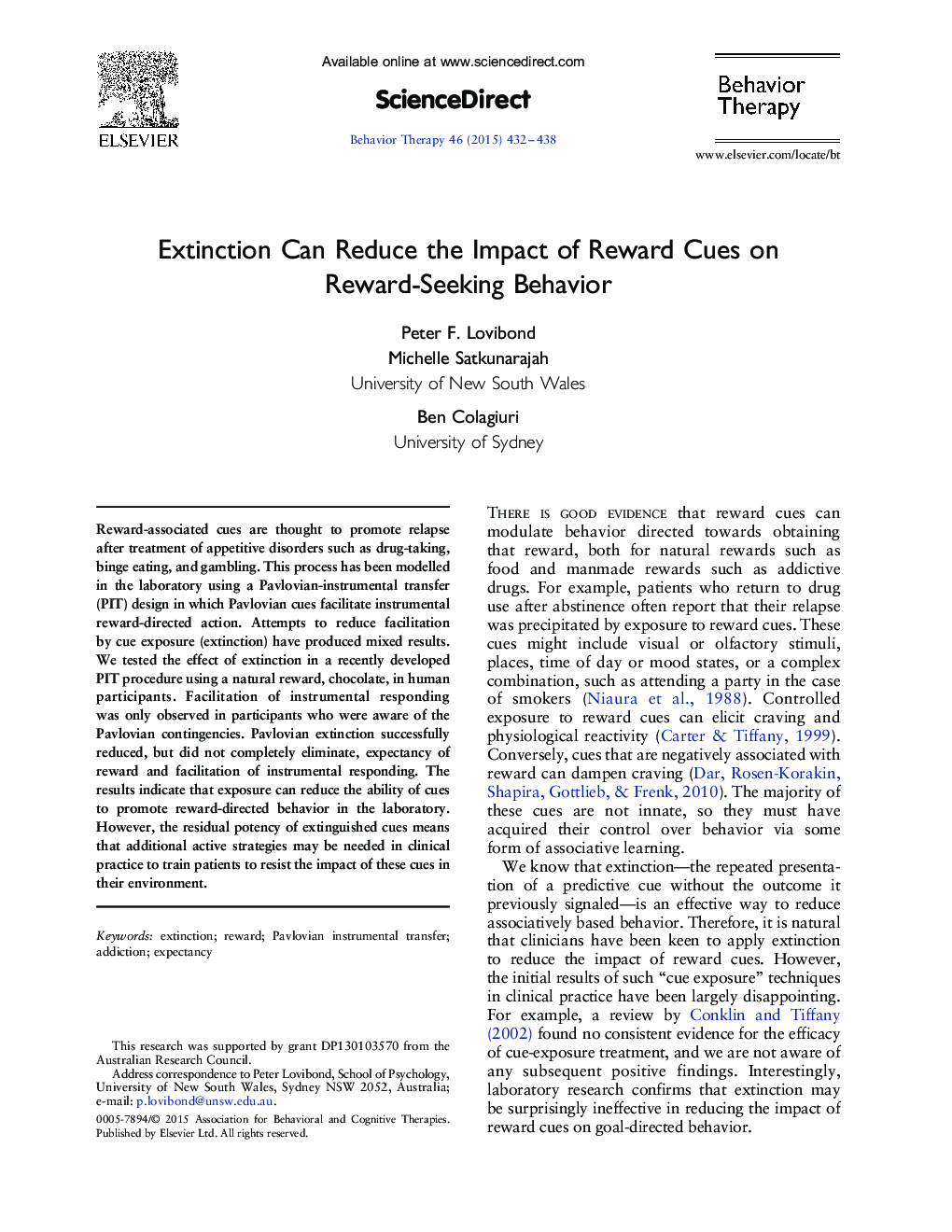| Article ID | Journal | Published Year | Pages | File Type |
|---|---|---|---|---|
| 901171 | Behavior Therapy | 2015 | 7 Pages |
•Appetitive Pavlovian instrumental transfer (PIT) was demonstrated using chocolate•PIT was only observed in participants who were aware of the Pavlovian contingencies•Pavlovian extinction successfully reduced but did not completely eliminate PIT•Cue exposure may assist in the management of appetitive disorders like addiction•However additional strategies are required to combat residual reward motivation
Reward-associated cues are thought to promote relapse after treatment of appetitive disorders such as drug-taking, binge eating, and gambling. This process has been modelled in the laboratory using a Pavlovian-instrumental transfer (PIT) design in which Pavlovian cues facilitate instrumental reward-directed action. Attempts to reduce facilitation by cue exposure (extinction) have produced mixed results. We tested the effect of extinction in a recently developed PIT procedure using a natural reward, chocolate, in human participants. Facilitation of instrumental responding was only observed in participants who were aware of the Pavlovian contingencies. Pavlovian extinction successfully reduced, but did not completely eliminate, expectancy of reward and facilitation of instrumental responding. The results indicate that exposure can reduce the ability of cues to promote reward-directed behavior in the laboratory. However, the residual potency of extinguished cues means that additional active strategies may be needed in clinical practice to train patients to resist the impact of these cues in their environment.
